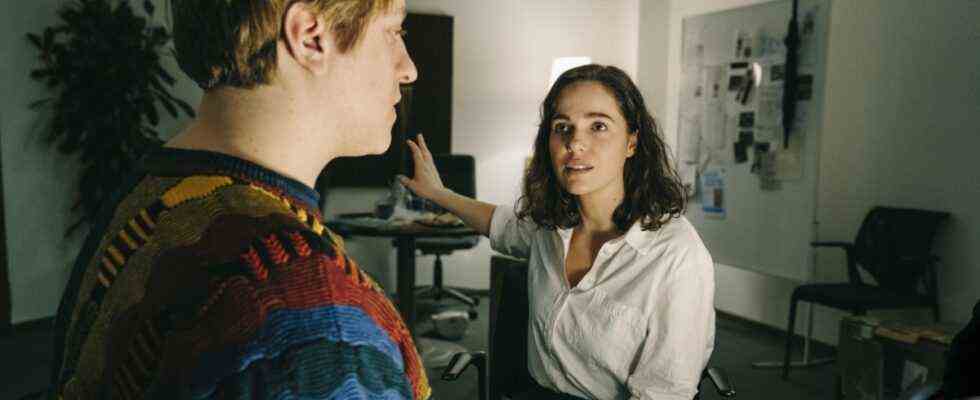22 O `clock. Everyone is under pressure, except for the man who may be the culprit. There are still two hours left. Elisabeth Eyckhoff (Verena Altenberger), from the patrol officer now to the chief commissioner in Munich Police call promotes, talks like a waterfall, sweats, moves closer to the interviewee, makes verbal dangling and tries to get a confession after all by reconstructing the crime. She continues to speak, sensitively, while the alleged attack is shown. A poor, highly disturbed man in a blood frenzy fails in an attempt to rape a student.
The new High Commissioner is right about everything, but what good is that without evidence? The time runs out at midnight, then the suspect has to be released. Of the Police call “Until midnight” (script: Tobias Kniebe, staging: Dominik Graf) is extremely exciting and exquisitely played – and he uses in a dramaturgically sophisticated way how physically measured and perceived time diverge.
On the one hand real-time fiction of detailed police work, on the other hand interrogation chamber play
In all of this there are breaks, like the meeting between Eyckhoff and public prosecutor Sarah Ehrmann (Birge Schade) during the vomiting and smoking break in the ladies’ toilet, in which both negotiate sexism in the workplace in a few words. But time is running out. Time that in this true crime case according to the book “Abysses: When People Become Murderers” by Josef Wilfling may not go further than the law allows. Because that means that a provisionally arrested person may only be detained until the end of the following day. As I said, there are two hours left. The suspect Jonas Borutta (Thomas Schubert) also speaks. All around, abstract, distant. About his intelligence and the cluelessness of psychiatrists. A waste of time, you can read in the face of the boss Martin Schaub (Christian Baumann). Even the old hand Murnauer (Michael Roll) is brought back to work, who had to let Borutta run three years ago as the murderer of a jogger.
In some ways, “Until Midnight” is reminiscent of other outstanding Graf thrillers, of “He should be dead” or “A city is being blackmailed”. On the one hand real-time fiction of frustrating small-scale police work, on the other hand interrogation chamber play. Nevertheless, Eyckhoff acts intelligently and empathically at the same time. You and Murnauer do not clash, instead of “Lonely Wolf” attitudes, a woman and a man, two focused interrogation specialists, work together as a team. That Eyckhoff was among those who snore in the district (last seen in “Frau Schrödinger’s Cat”) couldn’t last much longer, it was clear. But such a brilliant debut in the Presidium is an unexpected stroke of luck.
The first, Sunday, 8.15 p.m.
The screenwriter Tobias Kniebe, is editor of the SZ feature pages, Heike Hupertz is a freelance journalist.

